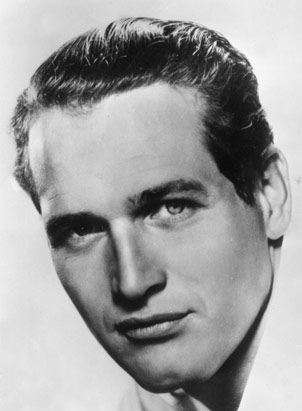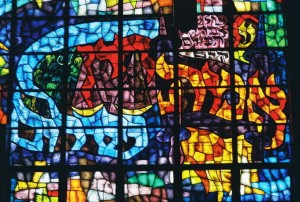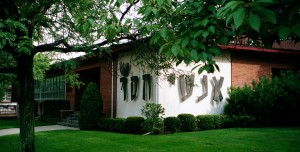Posts Tagged ‘Jews’
When Violent Criminals Are Orthodox
We were all shocked by the horrific murder of an 8-year-old boy just a few weeks ago. Like everyone else, I’m sure you asked, “How could that man be Orthodox and kill another human being? Isn’t murder against the Torah?” Our best answers boil down to, “Yes, murder is against the Torah. Therefore, he must not be Orthodox.” So we put the word Orthodox into quotes when we describe the murderer, and it makes us all feel better.
However, there is something more here. This is not the first time we have seen violence from people who live an Orthodox or frum lifestyle. We were also shocked a few months ago when a young Skverer man threw a firebomb into the home of a neighbor who preferred to daven elsewhere, and not at the main synagogue in New Square. The victim was badly burned and narrowly escaped with his life. His family was also lucky. But we all asked, “Who DOES that? So they daven at a different shul—big deal. We would never try to burn down a man’s house—and certainly not with the people inside!”
But the violence doesn’t end. This past week, a disgruntled advice seeker in Israel came back to kill the rabbi who gave him advice. He showed up and just stabbed him to death. Why? He said the rabbi had failed to solve his marital problems. Let me tell you, if this guy had that kind of murderous rage in him, believe me, he had more problems than just marital problems.
Speaking of marriage, why was that rabbi and his wife holding that guy hostage in their Lakewood home, beating him and threatening him? Yes, the Torah suggests we should “beat” a man until he gives his wife a get, but who really does that? And well, last time I checked, assault was a crime in this country. And yes, that rabbi and his wife were arrested.
What is going on? It’s hard to say it, or even accept it, but it appears that we are seeing an upward trend in violent crime among those who live an Orthodox lifestyle.
Yes, there was always the isolated story here and there, but these stories just don’t sound that isolated any more. People are angrier, and they aren’t afraid to show it.
But, you may say, “Jews are the ‘People of the Book!’ We’re a gentle nation, we’re always the victims, and we wouldn’t hurt a fly!” Not so. We need to open our eyes to the violent among us. Leiby’s murder was a rude awakening. If we were naïve before, we are no longer naïve. We can no longer trust a person by virtue of the fact that they lead an Orthodox lifestyle.
So why this upward trend? What’s going on in the Orthodox world that wasn’t going on before?
My theory is that the pressure to “get married/stay married/have kids/marry them well,” has become way too strong in the Orthodox community. It has reached insanely high levels. It is a prescription that not everyone will, can, or should follow. For many individuals and families, the shidduch crisis, homosexuality, divorce, infertility, illness, and death are realities closer to life.
But the pressure stays on. Get married. Stay married. Have kids. Marry them well. And the mental health issues in the community keep growing. We’ve all heard about eating disorders in the Orthodox community, alcohol abuse in the Orthodox community, domestic violence in the Orthodox community, and kids “at risk” in the Orthodox community. This new trend of outright violence is only another piece of this bigger picture. It turns out that we are a complex group of people, and we unfortunately share many ills with the general society in which we live.
As our community’s mental health is frayed, so is our educational system. We put all our stock in Jewish Education, but it keeps failing us. There are the kids dealing drugs a block from the school, the ones texting on shabbos, and others always getting kicked out from one yeshiva or another. And we keep paying through the nose for it all, hoping, hope upon hope, that our kids make it out okay, and, well, marry well.
And though we can’t afford the lifestyle, we somehow scrounge around enough money to impress our neighbors. So now, we’re not just trying to keep up with the Joneses. We ARE the Joneses.
And to top it all off, we have the added pressure of learning Torah, supporting Torah, living a Torah-lifestyle, and making sure that people know we’re doing it. Because if we do it, but nobody knows, we don’t get credit for it.
Our lifestyles are way too twisted to make any sense.
If they don’t make sense to us, they certainly don’t make sense to our kids. We’ve put ourselves between a rock and a hard place and then we wonder why we can’t get out. We wonder why our community is failing, why our schools can’t improve with all the money we’re putting into them, and why our mental health is in a downward spiral.
We need to relax the pressure to get married/stay married/have kids/marry them well. We need to realign our values such that life is not a show of money and frumkeit. We need to show our kids authentic Jewish experiences that make sense to them. And we need to realize the message we send our kids when we’re confused ourselves.
We need to come together to address serious issues in the community’s mental health. The events organized by Chai Lifeline after Leiby’s passing were a great first start. But the issues run deep, are worldwide, and they require ongoing attention.
These terrible acts of violence are indicative of a community at a breaking point. We need to unite not just in shock and horror, but in proactive efforts to make Orthodoxy viable as a lifestyle in our generation and the next.
May the Torah be a comfort to us, may we seek peace among our neighbors, and may each of us sit under our date trees in tranquility.
My Geni Journey: On Paul Newman and Intermarriage
A few weeks ago, I discovered several new branches of my family on Geni.com.
I was thrilled to find distant cousins that I never knew! We emailed old stories of people long gone, and verified our common history. We updated each other on our family news, and even figured out a certain ancestor’s Hebrew name. I have since friended some of my new cousins on Facebook, and several have agreed to join Geni. It has truly been an incredible experience.
For those of you unfamiliar with Geni.com, it’s a website where you can input your family tree. And when Geni sees that you and another person have both described the same person as a relative, it prompts the two of you to connect your trees. This is how I found these long-lost cousins. Geni is pure genius.

Paul Newman was my second cousin three times removed
This discovery put me on a Geni high. But weeks later, one thing is still gnawing at me. I discovered that a good chunk of that side of the family is married to non-Jews.
I wonder whether their kids will ever connect with mine as “family.” I wonder if these memories of my grandmother’s great “Tante Rezhin” will mean anything to them.
I wonder whether they will ever take an interest in their “Jewish side” and study this family tree that has become so dear to me.
I don’t know how it happened along the way. I don’t know if a closer-knit family—or a more religious family—could have prevented it. But somehow, somewhere, these cousins decided it was okay to marry out of the faith.
The truth is that I should not have been that surprised. Our celebrated family connection to Paul Newman (the famous actor, 1925-2008) should not be our biggest pride. Though quite the celebrity, Paul was born of a non-Jewish mother, and felt little relationship to us, cousins on his “Jewish side.” He gave to many important philanthropic causes, but not specifically to Jewish ones.
And I am beginning to realize that there are also other parts of the family that are no longer Jewish….
One of my distant cousins married Jewish and became frum through Chabad. He said that if you look at this family tree, you see what the landscape of the Jewish community will be like in 20 years. I replied that I find comfort in the fact that at least some of us are still holding down the fort.
But what does “holding down the fort” really mean?
Does it mean that I teach my children to marry Jewish? That’s it? What if they don’t? What am I doing to actively prevent intermarriage?
I guess you can say that I try to show my children the beauty of Judaism and that I teach them the Orthodox lifestyle.
But there are no guarantees. I’m sure my ancestors back in the “old country” never thought their children or grandchildren would marry non-Jews. They probably never imagined it possible.
But here we are. So many American Jews marrying out of the faith. Even in my own family.
I’m still not sure how I feel about it, but I felt it warranted a blog post.
Do you have intermarriage in your family? How do you feel about it?
The Larger the Community…the Less Friendly?
Why are smaller Jewish communities friendlier? The easy answer is, “It’s because everyone knows each other. And whoever lives there is all they’ve got.” Ok, I live in a small community. I get that.
But here’s the bigger question in my mind:
What happens to a community as it grows that makes people unfriendly?
Do people just wake up one day and say, “You know, there are waaay too many people in this community. Maybe if I stop being friendly, they’ll all go away!”
Ok, probably not.
But something is happening there that I can’t explain. When the community was small, a new family was welcomed warmly with friendly introductions, welcome gifts, and Shabbat meal invitations. But now that the community is larger, people can’t do that anymore…?
Maybe you can argue that the community is so large, it’s hard to reach everyone who just moved in. It becomes impossible to keep track of all the newcomers. And you don’t want to leave anybody out. So since you can’t invite all of them for meals, you just invite none of them.
Yeah that makes sense.
Ok, no it doesn’t.
Why can’t people in larger communities just welcome whoever they see is new?
Everyone should get a welcome from someone.
So here is where you say, “In larger communities, nobody knows who’s new and who’s not!” This makes sense for about half a second. Ok, that’s enough, that was more than half a second. Read it again and now let’s think this through. You see someone at Kiddush that you’ve never seen before. There are four possibilities:
- They are new in the community.
- They are not new, you just never met them before.
- They have lived here for a while but are newly observant.
- They are visiting the community for shabbos.
Not one of these possibilities precludes you from being friendly to them. In all four situations, there is absolutely no reason not to say “Good Shabbos” and no reason not to start a friendly conversation with them.
How about something like this: “Sorry, I don’t think we’ve met before. Do you live here….? Are you visiting…? Have you met our rabbi yet…?”
It’s really not complicated. Really, it isn’t.
I was once in a different community for shabbos. The only person who said one word to me at Kiddush was a paid employee of the shul: the rabbi. While I was glad of that, I wondered why nobody else in a shul of 200+ people thought to be friendly. When I told my host later, she said, “Really? That shul is known to be the friendliest one in town!”
Maybe. But only friendly to people they know.
You must admit, it’s a very odd phenomenon.
In very large communities, I’m sure there are women who look across the street, see someone they don’t know, and think to themselves: “Hm, she doesn’t know me, why should she want to talk to me? Besides, her outfit is much more stylish than mine. I can’t even compete. Uch, I won’t even bother. Besides, I have my friends.”
And maybe there are women who say the opposite. “Uch, look at her imitation boots, and how her sheitel is so flat on top. She’s so not cool. I wouldn’t want to be friends with someone like that.”
Whatever it is that stops people from being friendly in a larger community makes absolutely no sense. It simply boggles the mind.
I love my friendly community. We practically bombard newcomers with questions. “Where are you staying? Where are you from? Do you know the so-and-so’s? How do you like the shul so far? Who else did you meet? Where are you eating lunch? Etc., etc.”
No matter how big our community grows, when you come for a shabbos, I intend to welcome you that very same way.
Come for a shabbos! We love visitors! Congregation Anshe Chesed in Linden, NJ